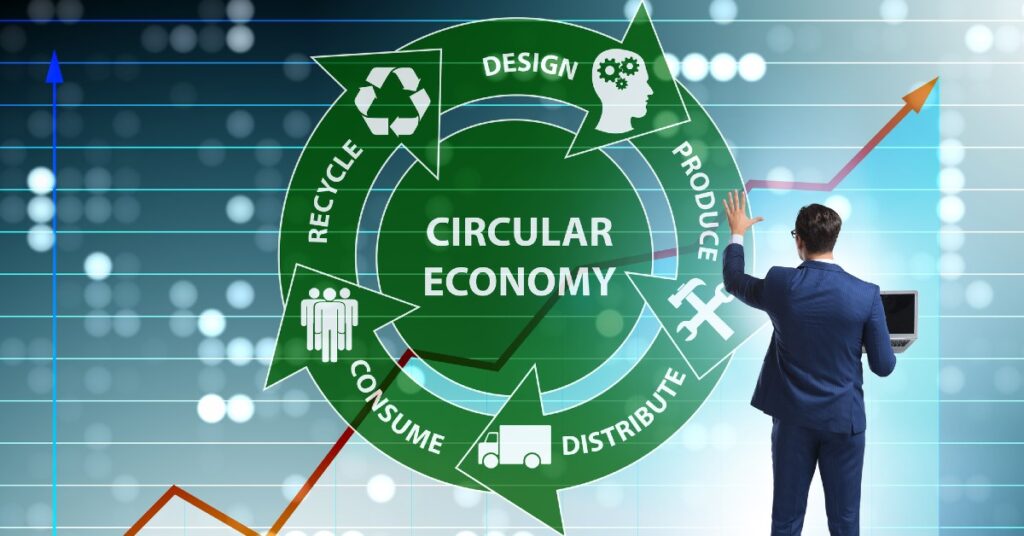Image Credit: Pieter Pot
Dutch startup Pieter Pot is facing the possibility of bankruptcy, delivering a setback to the idea of a circular economy.
Founded by Jouri Schoemaker and Martijn Bijmolt in 2019, Pieter Pot aimed to get rid of packaging waste.
The Rotterdam-based startup created a system that made it possible to deliver groceries without any packaging waste.
Since customers had limited options to buy packaging-free groceries, Pieter Pot replaced traditional single-use plastic food packaging with reusable pots.
Sale to Delicatessenfabriek

In a LinkedIn post, Schoemaker has revealed selling the company to Delicatessenfabriek, a partner responsible for the washing process of reusable pots.
![]()
The co-founder of Pieter Pot observed that the startup grew fast but not enough to become profitable on its own. He says Pieter Pot helped more than 50,000 customers embrace packaging-free groceries and saved more than 4 million packages.
Delicatessenfabriek, according to Schoemaker, will be able to integrate processes within the system to reach profitability.
“As I have always said, our mission is above our right to exist, our mission is above our own position. Now we had to put our money where our mouth was,” reads the translated post.
However, the Dutch news outlet RetailTrends reports that Delicatessenfabriek has written to creditors asking to settle for a percentage of the outstanding claim.
Jordan Koppelle and Dominique Rommers, the new shareholders, believe the company will go bankrupt without the settlement.
They also state their intent to further invest in the startup provided the creditors reach an agreement. Koppelle believes they can reach an agreement with the creditors by the end of this month.
“As much as necessary. If 95 per cent of the creditors agree, then it is not about extreme amounts to keep Pieter Pot afloat,” Koppelle told RetailTrends.
Less outsourcing and increased efficiency
If the new owners of Pieter Pot reach an agreement with the creditors then their first course of action will be to limit outsourcing work.
In addition to the washing process, Delicatessenfabriek will also absorb the work of filling the jars.
Koppelle also wants to look at the current processes that can be made efficient.
Last year, Pieter Pot laid off dozens of employees as it struggled to sustain the growth seen during the pandemic and even increased the minimum order amount.
With the shift to efficiency, there is a further possibility of jobs disappearing at the Dutch startup.
Schoemaker has reportedly stepped down as CEO while Bijmolt is taking a break. We have reached out to Schoemaker for his plan to save the mission and the future of Pieter Pot under new owners.
Setback to circular economy

The Netherlands and other European countries have been trying to transition to a circular economy to mitigate the risks of climate change.
While the linear economy mostly drew resources from select companies and organisations, the circular economy needs collective effort.
Pieter Pot played a small role driving the transition of the Dutch economy from linear to circular economy.
The startup spearheaded the idea of replacing all the packaging waste that comes with your shipments from retailers and businesses.
“Nobody is happy with all the waste packaging that comes with your deliveries, but the actual challenge is the effort required to get rid of it,” Schoemaker told Silicon Canals in October last year.
To get the idea off the ground, the founders had to shop for these reusable pots or jars from IKEA.
Now, that idea itself might be in trouble at a time when the shift to circular economy is the need of the hour.
Despite the impact, the sustainability startups have faced a challenging environment to build or raise funding.
Last year, Selva, a startup that wanted common people to limit their carbon footprint, shut shop.
“We planted over 60,000 trees and helped hundreds of people take genuine climate action. But good intention isn’t enough to build a sustainable company,” Harry Hely-Hutchinson, co-founder and CEO of Selva, wrote in a LinkedIn post.
If the new owners of Pieter Pot fail to convince their creditors then the startup will be another failure in the quest to create a sustainable business model with impact on the society.






































